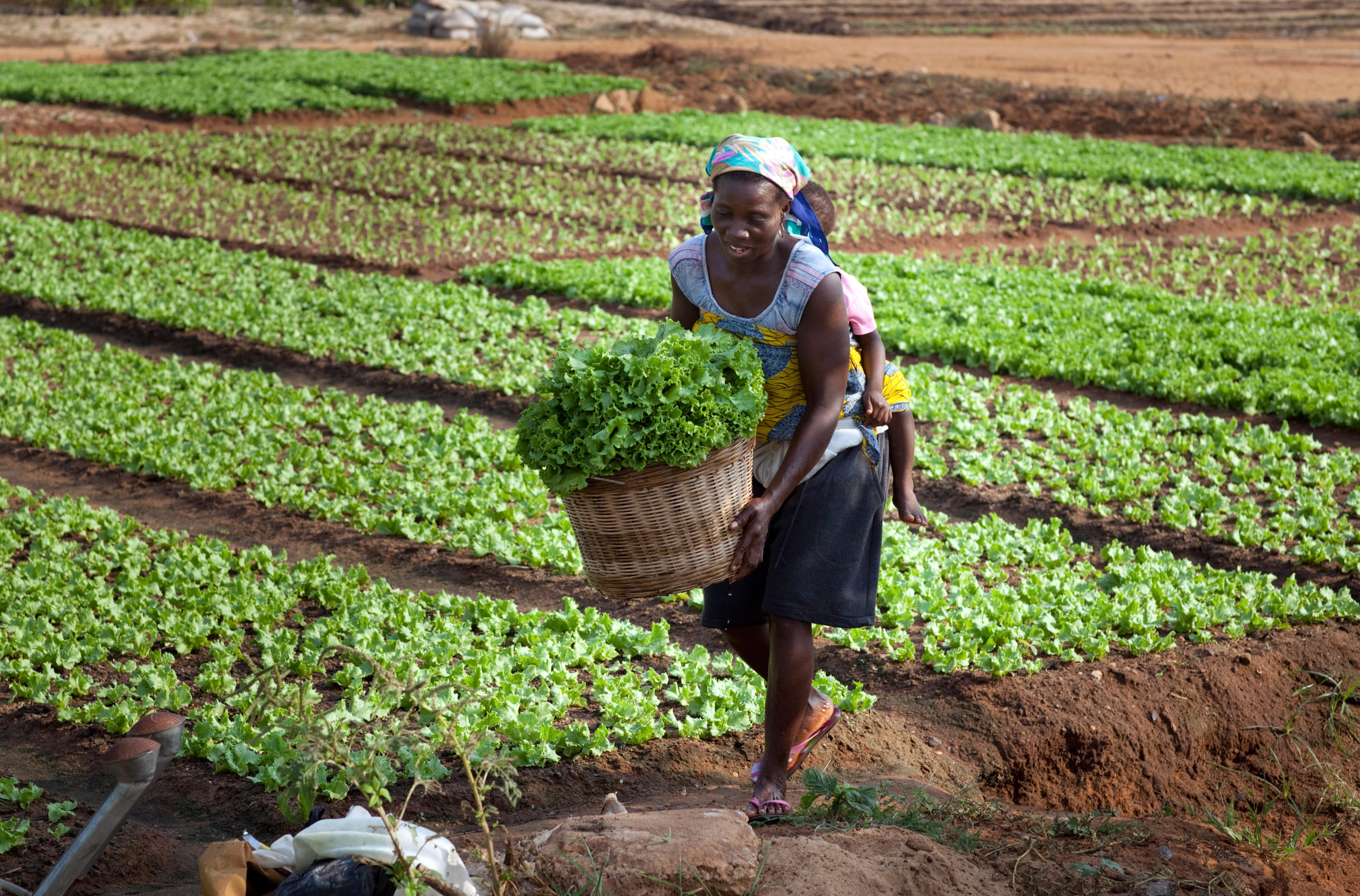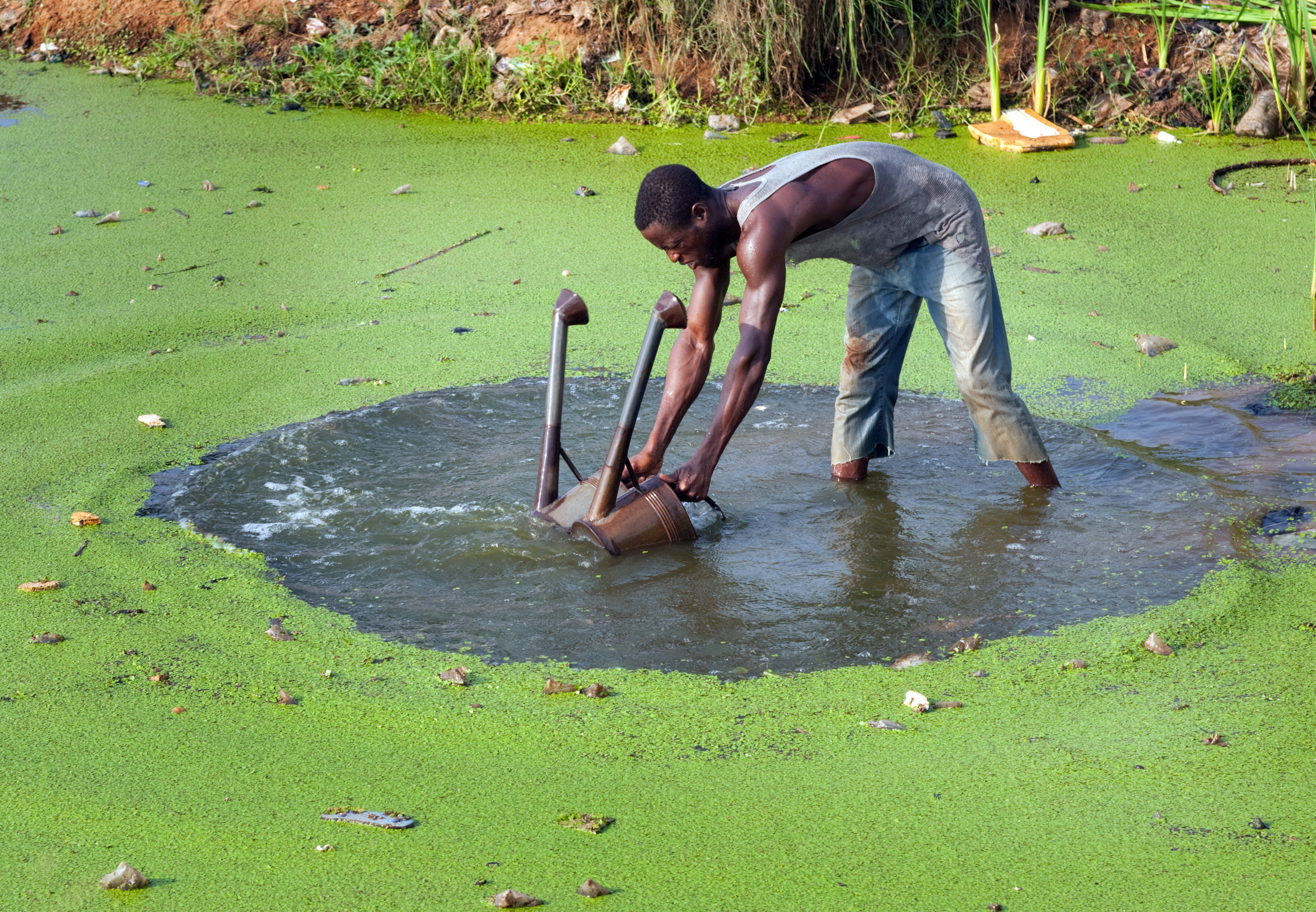A woman in Togo harvesting salad
Copyright© Ute Grabowsky/photothek.net
Core area “Transformation of agricultural and food systems” Achieving food security and creating opportunities
Most farmers in Togo use their products mainly to feed their own families. They do not generate an income or profits that they could invest in inputs such as machinery, irrigation or improved seeds. Both agricultural production and local processing offer great potential for increased value addition, generation of profits and creation of new jobs.
From production all the way to marketing
Germany's activities are geared towards improving selected value chains for small and medium-sized processing companies on a pilot basis (coffee, cocoa, cashew, vegetables, pineapple and other fruit). Tailor-made courses are used to enable farmers to increase their yields through sustainable methods, meet international quality standards, lower their production costs, secure sufficient food for themselves and their families, and make an additional income by selling some of their products.
One key topic in these programmes is efficient, climate change-adapted irrigation that can tide farmers over dry periods and increase yields.
At the national level, advice is being provided to the Togolese government on how to improve the environment for agricultural production and for the export of agricultural goods. Moreover, in cooperation with Togolese banks, loan programmes are being developed that are tailored to the specific conditions of smallholder agriculture. Financing opportunities for small and medium-sized enterprises are to be further expanded.
Financial Cooperation funding is also used to repair and improve rural roads in order to provide good access to fields and farms throughout the year. This facilitates quicker and cheaper transport of inputs such as seeds and of harvested crops, and it reduces losses from transport damage.
Results in the period of 2012 to 2024
- Nearly 65,000 farms – 25 per cent of them headed by women – were able to enhance their resilience to the impacts of climate change.
- In 114 villages, water is now being supplied through quality solar pumps. Nearly 70,000 people are enjoying better food security and economic opportunities thanks to solar-powered pumps and refrigerators.
- Some 450 kilometres of rural roads in cotton, coffee and cocoa production regions have been repaired and improved.
A farmer in Togo draws water from a pond to irrigate his fields.

